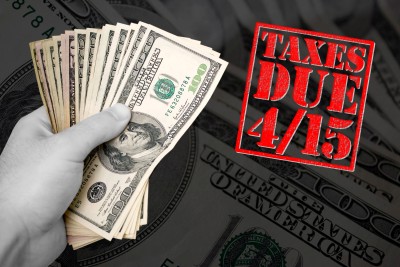6 Key Points About Filing Your Tax Returns

Dealing with taxes can be overwhelming, and more so when you haven’t been up to date with your returns.
Most people end up evading assessment not because they want to but because they don’t have the right information to deal with a messy tax situation.
Here is some insight to help you gain a better understanding of the process.
#1 Do I need to file a tax return?
Many people, especially freelancers and home-based entrepreneurs, aren’t sure if they need to file a tax return. Whether or not you need to file a return depends on your total annual income and your filing status.
Current taxation rules state that an individual with an annual income of less than or equal to $12,000 need not file taxes. A married couple with a gross income above $24,000 can file a joint return while ahead of the household must file if their individual income is over $18,000. This income threshold is called a standard deduction.
If you’re an individual filer whose gross annual income is $13,000, for example, then you will need to submit a tax return as your earnings exceed the standard deduction of $12,000. Do visit the official IRS website for more information on the same.
#2 What happens if I don’t file my return in a certain year?
If you qualified for filing in a given year but did not submit your return by the due date, you may have to pay fines and interest on your dues.
You can file a year’s tax return until April 15 of the next year. This means that you have until April 15, 2020, to file your return for 2019-20. If for some reason you’re likely to miss this deadline, you can seek an extension via form 4868, which extends the last filing date to October 15.
If you missed filing your return this year, a qualified tax attorney can help you in obtaining reasonable solutions for unfiled tax returns and also try and reach a settlement that will minimize your interest and fines.
#3 What is a substitute return?
If one fails to file their tax returns, the IRS will sometimes file on their behalf, which is known as a substitute return.
The problem with a substitute return is that it won’t take into account any deductions or tax exemptions that should be included when calculating your total taxable income. This increases your gross taxable income and therefore will likely result in higher taxes.
When a substitute return is filed, the IRS will send you a notice (Notice of Deficiency CP3219N) indicating the total amount you owe in unpaid taxes. You will get 90 days to file your own return to claim the deductions you’re entitled to. You may also appeal the matter in a tax court with the help of a taxation lawyer.
If you fail to respond to the notice, you’ll be liable to pay the full amount due as per the substitute return.
#4 Can a person be jailed for not filing income tax?
If you don’t pay your taxes, you’ll be contacted by the IRS for collection and it may not always be pleasant. Imprisonment is possible if it’s found that you were deliberately evading payment of taxes.
Since most individuals who fail to file are not deliberately avoiding a tax assessment, a prison sentence is unlikely. Deliberate evasion, however, can result in penalties up to $250,000 along with five years’ jail.
#5 How do I fix the problem of unfiled returns?
First and foremost, determine how many unfiled tax returns you’re dealing with- that is, the number of years you missed filing.
If you don’t know your income for a particular year, you can get it from the IRS by submitting form 4506T. You can also get information on earlier tax returns filed by you or on your behalf.
Once you have this information, file overdue returns at the earliest. Note that old tax dues can be dealt with through the IRS Fresh Start Program or by paying in installments.
#6 What if I don’t have the money to pay the IRS?
Many people end up defaulting on their tax payments simply because they can’t afford to pay the entire amount, not knowing that other resources are available.
If your current financial situation doesn’t allow you to pay what you owe, consult an experienced tax attorney who can help you obtain tax relief, reduce fines and negotiate a settlement, and handle any legal issues associated with your tax status.






